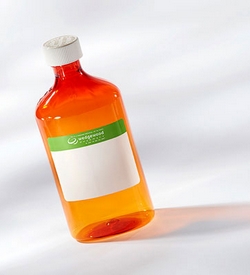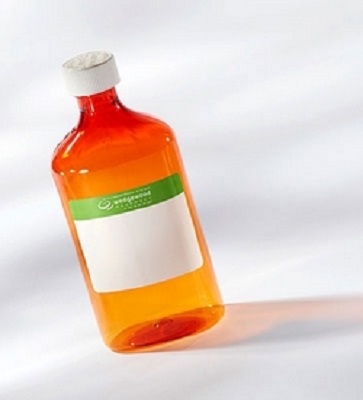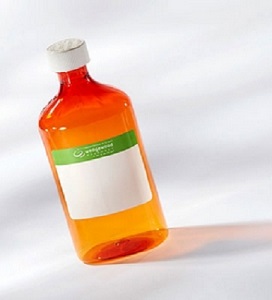Providing Quality & Trust || Clinic Website
Benazepril Furosemide Oral Oil Suspension
Wedgewood Pharmacy
$117.80 - $143.93
$117.80 Each
Detailed Description
BENAZEPRIL / FUROSEMIDE: ORAL OIL SUSPENSION

- Heart failure
- Hypertension
13 strength combinations of Benazepril / Furosemide Oral Oil Suspension are available.
- Benazepril HCl from 1.25 mg/ml to 10 mg/ml
- Furosemide from 6.25 mg/ml to 40 mg/ml
Dogs and cats
ACE inhibitor drugs, such as benazepril and enalapril are considered mainstays for the treatment of CHF in dogs and cats. Benazepril is a particularly useful drug for the treatment of hypertension in dogs. While benazepril alone may be used to treat mild hypertension in cats, amlodipine or a combination of benazepril and amlodipine may be more effective in treating cats with severe hypertension. Benazepril may be combined with amlodipine, or beta-blockers in refractory cases of hypertension.
Benazepril is used to treat chronic renal-failure and proteinuria in both dogs and cats. The improvement in renal function is postulated to be due to the anti-hypertensive effect, the reduction in mesangial cell proliferation, and renal vasodilation, which causes a decrease in renal filtration pressure and decreased proteinuria. Benazepril has been shown to increase renal plasma flow and glomerular filtration rates in cats. It has also been shown to improve appetite in cats with chronic kidney disease. Although the studies on chronic kidney disease in dogs and cats show positive trends, there have not been studies that indicate a significant increase in survival time.
Dogs and Cats
Furosemide is used in dogs and cats to promote diuresis and manage fluid retention. It is commonly used to treat pulmonary edema due to CHF. Other uses include diuresis in acute renal failure, management of ascites, hypercalcemia, or hyperkalemia. Although furosemide also lowers blood pressure through vasodilation, it is not considered a primary treatment for hypertension.
Cats are more sensitive to furosemide than dogs or other species and may need lower doses. Cats are also more likely to develop hypokalemia, azotemia and ototoxicity.
Side Effects
- Adverse effects due to ACE inhibitors are rare.
- Hypotension, weakness, lethargy, GI upset (anorexia, vomiting, diarrhea), hyperkalemia, and renal dysfunction.
- Although benazepril is used to treat chronic renal failure, there are instances of mild to moderate reversible renal failure which may be precipitated by volume depletion superimposed on dilatation of the efferent arterioles.
Side Effects
- The most-common side effects relate to volume depletion or electrolyte imbalances, the most serious being hyponatremia. Potassium, calcium, magnesium and sodium levels may need to be monitored. Animals that are eating and drinking normally have a reduced risk for dehydration or electrolyte depletion.
- Ototoxicity may occur, particularly in cats or in other species with high dose intravenous treatment.
- Other less common side effects include GI upset, hematologic changes, restlessness or weakness.
Precautions
- Patients receiving benazepril should be monitored regularly for arterial blood pressure, renal function, and serum electrolytes.
- ACE inhibitors should not be used in animals that have pre-existing hypotension, hypovolemia, hyponatremia, or are in acute renal failure.
- Hydration status should be checked and corrected before starting an animal on benazapril.
- Benazepril should be avoided in pregnant or lactating animals.
Drug Interactions
- Diuretics and other vasodilators may increase the incidence of hypotension or hyperkalemia. ACE inhibitors may increase the effect of diuretic drugs. Careful monitoring and adjustment of drug therapies may be necessary to reach the optimal therapeutic balance.
- Potassium-sparing diuretics or potassium supplements may increase the risk of hyperkalemia.
- NSAIDs including aspirin should be avoided in animals on benazapril due to an increased risk of acute renal failure.
- Concurrent use of benazepril and insulin may increase the risk of hypoglycemia. Animals may require additional monitoring.
- Concurrent use of benazepril and lithium may increase lithium levels. Animals may require additional monitoring.
Overdose
- If an overdose is recognized promptly, gut-emptying protocols should be attempted. Hypotension is the most clinically significant problem when managing an overdose of benazepril. Hospitalization with volume expansion, blood pressure monitoring, and supportive care may be necessary.

Powered by nopCommerce
This site is running in live payment mode. Real payments will be processed.

